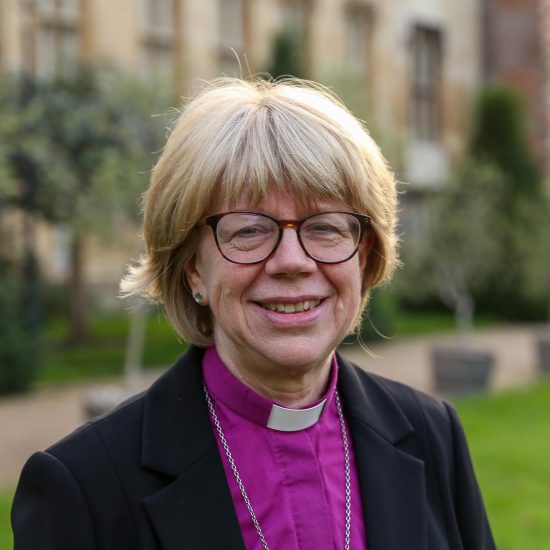
(RNS) — First, there was Xian’er, the cartoon-like, mantra-chanting robot Buddhist monk that China introduced in 2015. Then there was the German “BlessU-2” robot that dispensed blessings using ATM parts, and Pepper, the Japanese robot priest that delivered funeral rites.

A new AI chatbot program called AskCathy offers entry-level access to learning more about the Episcopal Church. (Photo from Pixabay/Creative Commons)
Now a new generation of religious AI is emerging with the advent of OpenAI’s ChatGPT — some with mixed success. The latest AI chatbot geared for spiritual seekers is AskCathy, co-launched in June by a research institute and ministry organization and aiming to roll out soon on Episcopal church websites. Cathy draws on the latest version of ChatGPT and is equipped to prioritize Episcopalian resources.
“This is not a substitute for a priest,” said the Rev. Tay Moss, director of one of Cathy’s architects, the Innovative Ministry Center, an organization based at the Toronto United Church Council that develops digital resources for communities of faith. “She comes alongside you in your search queries and helps you discover material. But she is not the end-all be-all of authority. She can’t tell you how to believe or what to believe.”
The Rev. Lorenzo Lebrija, the executive director of TryTank Research Institute at Virginia Theological Seminary and Cathy’s other principal developer, said all the institute’s projects attempt to follow the lead of the Holy Spirit, and Cathy is no different. He told Religion News Service the idea for Cathy materialized after brainstorming how to address young people’s spiritual needs. What if a chatbot could meet people asking life’s biggest questions with care, insight, and careful research?
“The goal is not that they will end up at their nearby Episcopal church on Sunday. The goal is that it will spark in them this knowledge that God is always with us, that God never leaves us,” Lebrija said. “This can be a tool that gives us a glimpse and little direction that we can then follow on our own.”
To do that, though, would require a chatbot designed to avoid the kinds of hallucinations and errors that have plagued other ChatGPT integrations. In May, the Catholic evangelization site Catholic Answers “defrocked” their AI avatar, Father Justin, designating him as a layperson after he reportedly claimed to be an ordained priest capable of taking confession and performing marriages.
Lebrija’s TryTank Institute teamed up with Moss’ Innovative Ministry Center to create a specific retrieval mechanism for Cathy tailored to the Episcopal Church. When asked a question, Cathy first searches her own library of resources for relevant information, then sends that context and the original question to ChatGPT before spouting off an answer. When possible, Cathy cites her sources. Her library, prioritized over the rest of ChatGPT’s resources, includes over 1,000 pages from the Episcopal Church’s website, The Book of Common Prayer, and authorized publications from the Forward Movement, a ministry of the Episcopal Church.
Pauline Cheong, professor of human communication at Arizona State University who studies spiritual groups’ use of AI, told RNS via email it is “rather tenuous” to claim, as AskCathy’s FAQ does, that Cathy exhibits “remarkable accuracy,” given that religious chatbots powered by ChatGPT can provide “erroneous and outdated information with false references.”
“Religion and technology have a historically complex and contested relationship, so it is interesting how the presentation of Cathy appears to exhibit the optics of optimism and trust in AI technology,” she wrote.
However, Moss said Cathy incorporates “state of the art” technology as of spring 2024, and her capabilities aren’t comparable to previous religious AI chatbots.
As Cathy developed, Moss and Lebrija realized she could be useful in a range of scenarios: a lay minister leading a parish who is looking for TEC-specific liturgies, a church member parsing through the denomination’s complex bylaws, a priest looking to accelerate their service planning to spend more time with parishioners or a person curious about the denomination’s positions on controversial topics.
“She makes it possible to have a different kind of conversation, which is far lower stakes for people who want to talk about subjects that make them feel vulnerable or defensive,” Moss said. “For example, one of the questions that we’ve gotten quite a bit is about polyamory.”
Peter Levenstrong, an associate rector at an Episcopal church in San Francisco who blogs about AI and the church, told RNS he thinks Cathy could familiarize people with Episcopalianism.
“We have a PR issue,” Levenstrong said. “Most people don’t realize there is a denomination that is deeply rooted in tradition, and yet open and affirming, and theologically inclusive, and doing its best to strive toward a future without racial injustice, without ecocide, all these huge problems that we as a church take very seriously.”
In his own context, Levenstrong has already used Cathy to brainstorm Harry Potter-themed lessons for children. (She recommended a related book written by an Episcopalian.)
Cathy’s creators know AI is a thorny topic. Their FAQ page anticipates potential critiques. In terms of environmental impact, Cathy’s creators report she uses between 3.6kJ and 36kJ of energy per exchange. By comparison, a single Google search uses roughly 1.08kJ of energy, per the FAQ page, and driving to the library to do research has “much more climate impact,” Moss said.
Moss added, that, in terms of privacy, Cathy saves the texts of conversations but not usernames or IP addresses. But even if Cathy is relatively secure, some experts and potential users are concerned that she could become a substitute for human interactions.
“I worry about disconnection,” said David DeSteno, a professor of psychology at Northeastern University in Boston who hosts the podcast “How God Works.” “One of the big benefits when it comes to health and wellbeing in religion has to do with building community, coming together, having personal relationships. If people start relying on AI for guidance, or in some ways leading prayer ceremonies at home, I worry it could separate them from actual clergy themselves, who they can form personal relationships with.”
Levenstrong said while concerns about AI replacing human interaction are valid, he doesn’t see that happening as a result of Cathy’s development. He sees Cathy not as a replacement for a priest, but a resource for people who don’t have “an expert on speed dial.” Cathy’s FAQ page notes that Cathy isn’t equipped to provide counseling or spiritual guidance.
Still, DeSteno said users begin to perceive AI as more sentient and spiritual when it doles out advice and shows empathy.
“It can build trust and connection in ways, because you think this thing is understanding you,” DeSteno said. “And if it has malintent, whatever message it’s giving you about how to act or what you should believe, can be much more persuasive.”
In RNS exchanges with Cathy, the chatbot often responded to requests for advice in part by suggesting speaking with a trusted priest, spiritual adviser, or professional counselor. In questions about scenarios involving divorce and domestic violence, Cathy expressed sorrow about the difficult situation before listing potential action steps, including ensuring people’s safety, listening non-judgmentally, encouraging professional help, and respecting people’s autonomy. She also often offered potentially relevant prayers from The Book of Common Prayer.
For now, AskCathy is still relatively new, and her impact remains to be seen. The designers initiated a “soft launch” at the denomination’s General Convention in June, and the website is live for anyone to use for free. Though AskCathy isn’t an official project of the Episcopal Church, nor is it on the denominational website, individual churches can fill out a form to have the chatbot embedded on their website for free as part of a pilot project.
If you ask Moss and Lebrija, AI is poised to transform the future of the church, regardless of whether the church is ready. To them, Cathy is just one way for the church to wield AI to its own advantage at a time when many in the church are struggling with burnout and a shortage of resources.
“I think the availability of information is going to explode in a new kind of way. We got used to what happened when the web opened up, and suddenly the church got pushed into the territory of livestreaming services,” Moss said. “This, I think, is the next step of that evolution.”










